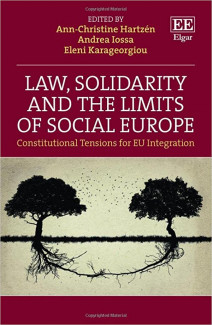
This paper will delve into the notions of solidarity and dignity and their meaning for the project of European integration. The paper argues that, in order to ensure its stability and success as a federal system, the EU needs to better institutionalize a mutually reinforcing two-step solidarity structure: it needs to ensure that: (1) everyone participates in the common project (largely defined) without expecting a guaranteed net benefit in the immediate term, and (2) that there are sufficiently robust redistributive mechanisms in place so that individuals, groups and Member States that (structurally) lose in the common system are duly compensated. Furthermore, beyond monetary compensation, the EU system needs to guarantee the dignity of each individual, especially those who have 'lost out' in the integration process. EU law can play an important instrumental role here, as will be detailed in the tentative reform proposals formulated. Of course, in addition, it is also crucial that the EU's common scheme and the benefits it yields overall are clearly visible and understandable, which links to the much-debated problems of citizen alienation due to a lack of a direct communication link between the EU and its populace, and to the lack of a genuine European public sphere. (Changes to) EU education law and policy could prove instrumental in this respect.